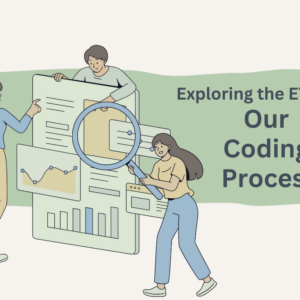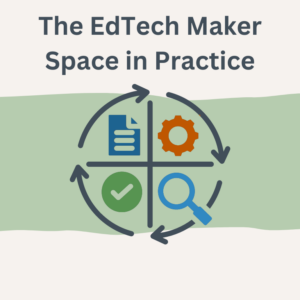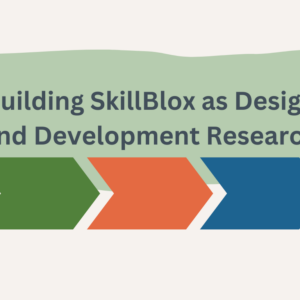 By the 21CLEO Research Team
By the 21CLEO Research Team
Preface
Part of our research process has been to engage the voices of individuals involved in employer-supported education and training initiatives or otherwise impacted by the issues we have been investigating. To this end, we hosted a series of convenings to discuss our findings, and invited a group of 12 interested parties who represented a range of backgrounds and experience in the workforce development system to respond to our initial observations, to make sure that we are doing things that were relevant and useful, and to identify things that we had missed or that we didn’t get right.
Participants in the convenings, who we consider our research partners, included working learners, individuals who work directly with front line workers, adult education practitioners, others who work in the workforce development system, and individuals who work for organizations known to engage in research and advocacy. The practitioners and professionals among this group shared a number of characteristics that made their insight especially valuable. Many were working on innovative projects focused on adult learning and workforce development. Their interest and experience working to improve access to relevant education and training meant that they knew about different innovative initiatives or approaches. They were thus uniquely qualified to respond to our research findings in a series of three convenings, each with a different focus. We described the process that we used to involve working learners in the research process in a blog post called Many Voices: Participants as Research Partners. In this blog post we share observations on the limitations of our persona articulated by our research partners.
In our group meetings with our research partners, all agreed that the personas we developed to represent the frontline service working learners we interviewed can be a good place to start when designing employer-supported education and training initiatives.
The persona previously developed include:
- Neberu: Working To Feel Comfortable Interacting With English Speakers
- Alimayu: College-educated Retail Worker Learning English
- Elise: Juggling Work, Required Training, And Long-term Goals
- Regina: Healthcare Worker Seeking To Establish A Career
- Dani: Front-line Supervisor Paid Hourly Seeking Certification For Advancement
- Naomi: Learning for Future Possibilities
Due to logistical limitations of who was a part of our working learner interview pool, some learners and contexts are not represented in the persona set (see Missing persona: Insights from Key Stakeholders).
Our research partners acknowledged the tension between explicitness and brevity of the persona. One individual remarked, “brevity is important in order to keep people engaged in your project.” While keeping persona concise was important for readability, the persona also needed to be sufficiently expansive to reflect the subjects represented.
Supports for learners
One research partner suggested that we develop a focus within the persona that addresses supports for learners using Universal Design principles for persistence. He suggested, “At some point, learning becomes less about what challenge(s) the learner faces because of their background and more about what we can do to set them up for success.” Suggestions for promoting learners’ success included: 1) implementing course design that increases peer-to-peer and instructor-to-learner interactions, 2) ensuring learners are given access to and become familiar with all support services, advising, and tutoring that an organization offers, and 3) developing a mentoring program that is short, relevant, and aligned to the students’ interests and the employers’ needs.
Our research partners suggested widening the lens on our persona to describe multiple kinds of persistence that learners bring to their learning experiences. A better understanding of persistence, and descriptors of persistence, may help those who support learners in workforce development and adult education draw out persistence toward learning by providing well-designed supports.
Limitations of Persona
Conversations with our research partners during our online convenings suggested that wide-scale use of the persona could be achieved, but that there are important limitations. The group agreed that the persona were helpful for keeping in the forefront the needs of learners and their learned and lived experiences. One individual suggested, “These [persona] would be great to use when training new staff at my employer.”
Though all of our colleagues connected with the persona, they agreed that they should not be generalized to a wider pool of working learners. One person shared, “It is not easy to fit our learners into a few boxes. There are just 6 persona developed to represent the whole population taking part in workplace learning. There are additional reasons for adults to come to our programs.” He suggested instead that the set of persona be used to broaden the description of the scope of opportunities learners come to programs for.
Another of our research partners suggested, “We need more research on what will help these learners succeed. Adult educators like myself usually focus on improving academic skills or digital literacy, but employer support is critical.”
Usefulness of Persona
One research partner suggested that developing professional learning resources for workforce and adult education training that use our persona could be more practical than extending or expanding the set of persona we offered. One research colleague shared, “ I see the framework you’ve taken as a model that can be further enhanced by the CBO’s and workforce organizations.” Getting these out in the field as tools for learning and communication was an important outcome of our persona development.
Conclusion
The responses from our research partners have enriched our understanding of what it means to participate in education and training initiatives in the 21st century. Each context for learning is different, and each learner has different experiences and purposes for engaging in learning. But across our data, we’ve seen a commitment and enthusiasm for continued learning among the working learners we were privileged to interview as well as those interested parties who shared their wisdom and experiences with us. We are grateful for the time and insights of everyone we’ve talked to.
Special thanks to our research partners:
Maria Luisa Castaneda, 1199 SEIU Home Care Industry Education Fund
Orlando Cazerez, Center for the Future of Arizona
Ashlei Jones, Independent learner-advisor
Conzolo Migliozzi, 1199 SEIU United Healthcare Workers East
Huda Muhammed, Lutheran Immigration and Refugee Service
Cherie Phipps, The Western States Chain Grocers Association
Federico Salas-Isnardi, Mayor’s Office for Adult Literacy (MOAL) in Houston
Muhammad Shafique, Independent learner-advisor
Iftu Usha, Independent learner-advisor



